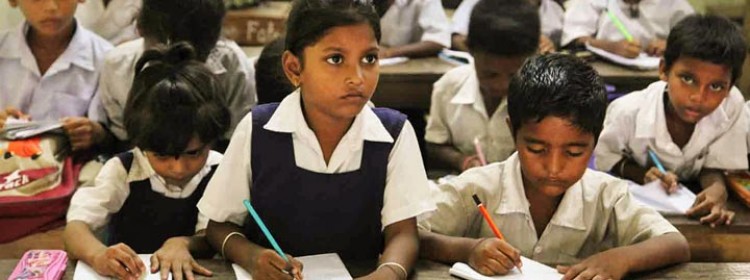- July-11-2019
Education for All
Education for All
The world has changed from 1966 – but our purpose to provide every woman and man with the skills, aptitudes and opportunities to become everything they wish, in dignity and respect, continues as firm as ever. Literacy is a foundation to build a more sustainable tomorrow for all. UNESCO Director-General Irina Bokova
8th September, celebrated as International Literacy Day globally was proclaimed by UNESCO (United Nations Educational, Scientific, and Cultural Organization) fifty years ago on November 17, 1965, with the objective to highlight the significance of “literacy” to individuals, communities and organizations around the world.
The research shows that around 775 million adults around the world aren’t provided even with the basic literary abilities, one in five adults is still illiterate and ironically around two-thirds of them are women. Around 60.7 million children don’t have access to education and many more either don’t attend school regularly or are dropouts.
The stark connection between poverty, prejudice against women, and illiteracy is inevitably reflected through the UNESCO’s “Global Monitoring Report on Education for All (2006)” which exhibits that the South and West Asia has the lowest regional adult literacy rate of 58.6%, followed by Arab countries and sub-Saharan Africa standing at 59.7% and 62.7% literacy rate. However, countries with the lowest literacy standard in the world are Niger, Mali and Burkin Faso with 14.4%, 19%, and 12.8% literacy rate in the world.
In India, although the literacy rate has recorded a growth of 12% since Independence and has grown to 74.04% however it lags behind when matched to the world average literacy rate of 84%. Despite plethora of programmes begun by the government, India still tops the status of becoming the largest illiterate population in the world.
The recent UNESCO report shows that if India doesn’t make fundamental changes in its education system, it will be unable to attain its global education commitments. And as per the UNESCO’s new Global Education Monitoring (GEM) report, India will accomplish its universal primary education in 2050, universal lower secondary education in 2060 and universal upper secondary education in 2085 which means that India will be lagging behind by almost fifty years to achieve the 2030 Sustainable Development Goals (SDGs) deadline.
The report further emphasizes the need to abolish obsolete education systems and introduce global and innovative systems to transform the education sector. The report also highlights another report, “Education for People and Planet” revealing the necessity for education systems in building awareness about the environmental concerns. It raises concern over the matter that, “While in the majority of countries, education is the best indicator of climate change perception, half of countries curricula worldwide do not explicitly discuss climate change in their content. India is a difference, where currently some 300 million school students receive some environmental education”.
Every year the International Literacy Day ceremonies are marked under specific themes in line including its Education For All goals and other flagship programs from United Nations such as The United Nations Literacy Decade. The year 2016 marked its 50th Anniversary and UNESCO is honouring it under the theme “Reading the Past, Writing the Future”.
The day will see global celebrations, inviting governments, NGOs, corporates, societies, communities, experts, learners, multi and bilateral organizations, and teachers at one podium to confer the past five decades of efforts for increasing the literacy rates around the world. But the main ceremony will be held at UNESCO Headquarters, Paris marked in the form of a two-day conference on 8th and 9th September. It will felicitate the people with International Literacy Prizes for providing outstanding answers to increase the literacy rate for achieving the 2030 Education Agenda. And this year the focus is on innovation.
This is the first year of implementation of the 2030 Agenda for Sustainable Development, with special focus on youth and adults. Literacy is a part of Sustainable Development Goal 4, with the target that by 2030 all youth and a substantial proportion of adults, both men and women, around the world are literate.
